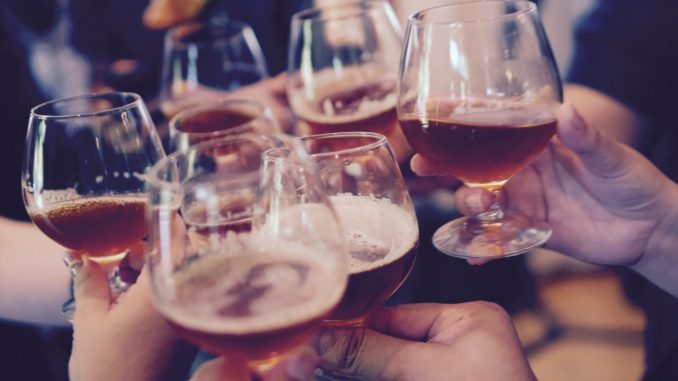
Alcohol consumption is a traditional rite of passage for many Americans. A 2018 survey found that 86% of individuals ages 18 and up had drank alcohol at some point in their lives. While many people may abstain, the vast majority experience some level of drinking during their lifetime.
Keep reading to learn how your drinking habits may affect your health and those around you.
1. What Does Binge Drinking Mean?
Binge drinking occurs when an individual’s blood alcohol concentration level (BAC) reaches 0.08 g/dl or above due to excessive alcohol consumption in a limited time. In men, this commonly occurs after consuming five or more alcoholic beverages within two hours. In women, it arises after only four drinks over the same duration.
In the United States, binge drinking is the most common, expensive and fatal pattern of extreme alcohol use. This form of consumption is popular among young adults, but also regularly occurs in seniors.
2. Does Excessive Drinking Make You an Alcoholic?
While 30% of Americans report excessive drinking, only 3.5% have alcohol use disorder (AUD). This means that extreme consumption does not automatically qualify you as an alcoholic. Alcoholism is considered a chronic disease. This form of dependence can lead to personal and professional problems. It causes the inability to limit drinking. Additionally, one symptom is that you may think of nothing besides your need to drink more.
Heavy drinkers are often classified as almost alcoholics because they can still be negatively affected by their habits. Regardless of how you classify your heavy drinking, you’re likely harming your health and relationships.
3. How Can Drinking Be Harmful?
Unrestrained drinking can affect your physical health, mental health and relationships.
Physical Health
Abusing alcohol can increase your risk of developing severe health problems and can ultimately be fatal. It raises the likelihood of developing certain types of cancer, such as cancer of the mouth, throat, esophagus, breast, liver and colon. Additionally, it can lead to stroke, heart failure and liver disease.
People can get pancreatitis, and heavy drinking can lead to high blood pressure, which can, in turn, lead to more health problems. In excess, alcohol puts a strain on almost every internal organ.
Mental Health
Binge drinking can lead to suicidal thoughts. It impairs judgment, steering people towards decisions that are unlike their sober selves.
Additionally, alcoholism can lead to psychiatric disorders, depression and brain damage. By impairing judgment, alcohol abuse can also cause people to try other harmful substances like illegal drugs.
Relationship Changes
Binge drinking can lead to violent behavior, including homicide, intimate partner violence, sexual assault and suicide. It can alter a person’s personality, which often leads to personal and professional difficulties.
Driving under the influence (DUI) is the leading cause of fatal car accidents in the U.S. Every year, more than 10,000 people are killed by drunk-driving crashes. These accidents change countless lives every single day.
4. Is It Better to Binge Drink or Drink Daily?
It is much healthier to have a glass of wine every day than binge drink on the weekends? Moderation is key. Binge drinking will cause the adverse side effects listed above, but limited amounts of booze every day can have several positive effects.
Remember that alcohol can cause dehydration, so it’s better to drink with a meal and have some water after.
5. How Do You Start Consuming in Moderation?
Moderation management programs exist to address problematic drinking. People are taught to manage their drinking episodes and only partake in moderation. Begin by setting attainable goals and tracking intake. In healthy adults, moderate use is defined as one drink for women or two for men.
By exercising restraint, you can enjoy the benefits of alcohol without any negative side effects. When addressing the advantages of alcohol consumption, experts are referring to moderate drinking.
6. Can an Alcoholic Beverage Have Positive Effects?
Drinking in moderation can have positive benefits. It can reduce your risk of developing cardiovascular disease or diabetes. For some, drinking may make you feel happy, creative, confident or relaxed. However, these emotional effects vary with each individual.

Wine contains a compound known as resveratrol, which exists in fruit skins. Studies have shown that resveratrol may have preventive and curative effects for several illnesses. The only concern is that these conclusive studies were conducted on mice and petri dishes rather than humans.
Human experiments typically have too many variables to gauge an accurate correlation between moderate drinking and health advantages. According to a professor at Harvard Medical School, you would have to drink between 100 and 1,000 glasses of wine each day to experience the equivalent therapeutic effect from the compound.
Ultimately, there’s an inconsistent view on how many positive effects are gained from light drinking.
7. When Should You Avoid Alcohol?
You should not drink alcohol if you are pregnant. Drinking during pregnancy can result in a miscarriage or stillbirth. If the baby survives, it can experience fetal alcohol spectrum disorders. It may also have cognitive impairments. If you are breastfeeding, you should talk with your physician before ingesting alcohol.
If you are in the U.S., it is illegal to drink under the age of 21. If you drink underage, you may be fined, sent to jail or required to complete a course. Punishments increase with each offense. If you are in university, underage drinking may be grounds for expulsion.
Recovering alcoholics or individuals incapable of controlling how much they consume should abstain from all alcohol.
People with underlying health conditions may take medications that are not compatible with alcohol. Check with your doctor before drinking while on medication.
Anyone who needs to operate a vehicle or heavy machinery should not drink before the activity. If you need to be coordinated or alert for any reason, you should avoid ingesting any booze.
Finding the Balance
As with most things in life, balance is critical to healthy alcohol consumption. If you choose to drink, remember to do so in moderation so you don’t experience the adverse side effects. If you’re on the fence between light drinking or abstinence, bear in mind that there are proven methods for improving your health that do not involve controversial substances.

